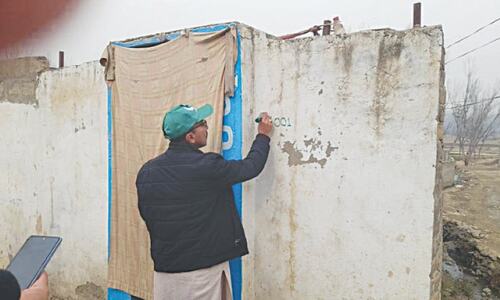LONDON, Oct 31: A country should have the right to attack another if it is harbouring a potential terrorist threat, according to the US homeland security chief.
In remarks appearing to justify recent US raids in Pakistan and Syria, Michael Chertoff said international law should accommodate a country’s need to deter a possible threat abroad even if it meant taking pre-emptive action. His comments follow recent secret raids by US forces into Pakistan and Syria that drew condemnation from those countries.
Laying out what amounts to a broadened definition of self-defence, he said at a discussion on democracy held in the British parliament: “International law must begin to recognise that part of the responsibility of sovereignty is the responsibility to make sure that your own country does not become a platform for attacking other countries.
“There are areas of the world that are ungoverned or ungovernable but nevertheless technically within the sovereignty of boundaries. Does that mean we simply have to allow terrorists to operate there, in kind of badlands, where they can plan, they can set up laboratories, they can experiment with chemical weapons and with biological weapons?”
His remarks, challenged by some members of parliament in the audience, follow comments made by US Secretary of Defence Robert Gates on Tuesday in which he said Washington would hold countries fully accountable for their actions.
Gates’ remarks, made to the Carnegie Endowment for International Peace, included a warning that the United States should modernise its nuclear arsenal as a hedge against “rogue nations”.
The expanded definition of what constitutes self-defence and could be permitted under the concept of deterrence has important implications for US foreign policy at a time when it is engaged in two wars in unstable regions and when it has expressed frequent concern about Iran’s actions.
Chertoff described a world in which the United States, and other democracies, were facing extraordinary threats that required them to be super-vigilant and responsive. Waiting to see if others would attack was not good enough, he claimed.
“If country X, within its borders, is openly tolerating or incapable of managing a location where people are consistently attacking a neighbour, is it sufficient to say, ‘well, it’s within their sovereign territory, nobody can do anything about it’? I think that’s not true and I think there’s a serious question about whether that’s what the law ought to be.
“The larger question of the responsibility to make sure your own country is not a platform for attacking others is a matter that needs to be seriously considered in terms of what the law should be,” he said.—Reuters














































Dear visitor, the comments section is undergoing an overhaul and will return soon.